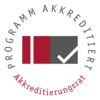Political Economy of European Integration
- DegreeMaster of Arts (M.A.)
- Type of studyFull-time study
- Standard period of study3 semesters
- Commencement of studiesWinter semester (1 Oct)
- Credits (ECTS)90
- Language of instructionEnglish
- Department / Central InstituteDepartment of Business and Economics
Degree programme
The European Union (EU) and the integration process which it involves poses a new challenge for the protection of natural resources and the regulation of trade and finance, work and social policy. These challenges stem from resistance to deeper integration and social solidarity and the process of globalization. The explosiveness of this situation is manifested in the range of crises currently unfolding within the EU.
The Master’s degree programme Political Economy of European Integration seeks to impart a better understanding of the various situations in which the EU is seeking to realize its goals. Graduates of this programme will be able to participate in the processes of European Integration. Students from outside the EU will be accorded the opportunity to acquire a qualification which will enable them to work in contexts dealing with the EU.
Professional field
Graduates of the Master’s degree programme Political Economy of European Integration can pursue a range of international careers; and are recruited to a range of government organisations and companies, unions and NGOs which deal with the research and development of European policies.
Degree structure
The first semester consists of obligatory introductory courses outlining the principles of economic, political and social integration and the increasing transfer of powers from the nation states to the European level. This focuses on the dimensions nature, energy and sustainability; work, labour and social reproduction; and money and trade.
The second semester is dedicated to a project seminar on current issues in the European integration process. Students can supplement this with choices from a number of specialist courses.
The third semester is reserved for the master's thesis and the oral master's examination, unless an internship or a semester abroad is completed. In this case, the study programme is extended from three to four semesters.
First semester
- Module 1: Dimensions of European Integration: Nature, Sustainability, and Energy Security
- Module 2: Dimensions of European Integration: Work, Labour, and
- Social Reproduction
- Module 3: Dimensions of European Integration: Money and Trade
- Module 4: European Multilevel Governance
- Supervision seminar (Tutorial I)
Second semester
- Module 1: Current Issues of European Integration
- Module 2 and 3: Electives including:
- Politics of Social Cohesion in Europe
- Labour and Ecology
- Modelling Ecological Economics
- Growth and Distribution
- Recent Developments in European Law
- International Political Economy
- Political Economy of Modern Capitalism
- Econometrics
- Module 4: The Role of Europe in a Multipolar World, or another course from the Master’s pool (e.g. Feminist Economics, Regional Economic Integration)
- Supervision seminar (Tutorial II)
Third semester
- Research methodology seminar
- Master’s thesis
- Final oral examination
- Degree in Economics, Political or Social Science from an accredited university,
- At least 210 credit points. Applicants with 180 credits will be required to obtain the additional 30 credits, for example by completing a placement in the third semester (the programme will then last four semesters),
- Evidence specifically of having completed undergraduate modules in Macroeconomics, Political Science (or comparable courses) and / or European Studies.
- English language skills on a high B2 level proved by a standardised test, e.g. TOEFL (iBT minimum score 83), IELTS (minimum score 6.0), TOEIC Four Skills (minimum score 1200), PTE Academic (minimum score 67), Cambridge English Scale (minimum score 170), Oxford Test of English (minimum score 126), UNIcert II
If you have studied in the higher education system a minimum of two semesters entirely in English, this can be accepted as equivalent (please provide proof with your application). You do not need to provide further English certificates if you hold a GMAT. - Letter of motivation in English
- Curriculum vitae in English
- How to apply for this programme
- FAQs: Applying for Master degree programmes at the Department of Business and Economics
Applicants with a degree from a German university:
15.04.-15.06.
Please, apply online through the HWR Berlin application platform (S.A.M.).
Applicants with a degree from an university abroad:
15.03.-15.05.
Students with a Non-German Bachelor degree apply at uni-assist e. V.
Students who acquired less than 210 European Credit Transfer System [ECTS] points in their Bachelor course must obtain the missing credit points for example by way of an integrated period of practical training, for which 30 ECTS points are awarded. This internship semester is scheduled in the third semester, after the theoretical phase and before the completion of studies. The master programme will thus last four semesters.
The content of the internship has to relate to the focus of your master studies. After enrollment you can place a request for accreditation of previous work experience or internships.
Alternatively, the missing 30 ECTS may be gained through studies abroad during your third semester. More information will be given after the start of studies upon request.
You will not have to acquire extra ECTS if your Bachelor programme was not accredited according to the ECTS point system. This generally holds true for non-EU-study programmes.
Students who have already gained 210 ECTS points in their Bachelor and completed an internship may do an additional voluntary internship in their third semester.
All information on the offered modules and lectures can be found on the online campus management system S.A.M. (Study Administration Management).
All regulations, forms and documents can be found in your faculty site.
Fees and grants
- Tuition fees
None
- Semesterfee
ca. € 300 per semester (incl. local transport semester ticket)
Information for prospective students
ZR Studierendenservice
Allgemeine Studienberatung
+49 30 30877-1919
+49 30 30877-1919
Advice for applicants and students
Department of Business and Economics
Dagmar Hofmann
Studienbüro 3
+49 30-30877-1425
Admission and enrolment
Office for Applications, Admissions and Enrolment
+49 30 30877-1800
bbzi@hwr-berlin.de
Office hours:
Mon 14.00–16.00
Wed 10.00–12.00
Thu 14.00–16.00
Academic Director

Department of Business and Economics
Prof. Dr. Sigrid Betzelt
Professor of Social Sciences – specialising in the sociology of work and organisations
